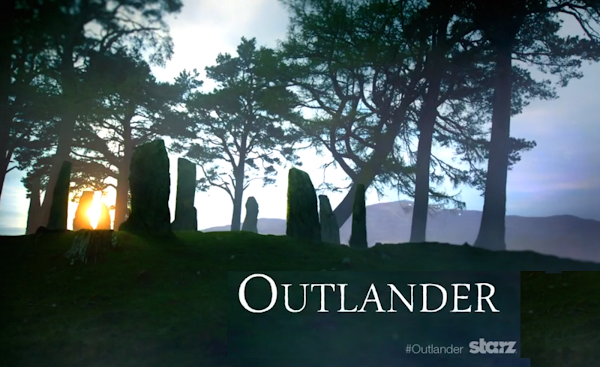Quotes relating to the current financial crisis
Speculative Bubbles
This quote is from Lord John's explanation of how his father ended up losing his title as Duke of Pardloe. It all started with a bubble that seems very reminiscent of what happened with tech stocks in the 1990's, or real estate prices today:
Within the previous five years, the price of South Sea shares had risen, from ten pounds to a hundred, then dizzyingly, from a hundred to a thousand within a year, driven up by rumor, greed--and not a little calculated chicanery on the part of the company's directors. The duke sold his shares at this pinnacle.
"And a week--one week--later, the slide began." It had taken most of a year for the full devastation of the great crash to become evident. Several great families had been ruined; many lesser folk all but obliterated. And the public outcry toward those seen to be responsible...
(From Lord John and the Brotherhood of the Blade, by Diana Gabaldon, chapter 4 ("Chisping"). Copyright (c) 2007 by Diana Gabaldon. All rights reserved.)
Foreclosures
This is, of course, neither a new problem nor one confined to the United States of the early 21st century. But foreclosures have been much in the news lately. I'm sure many of you can sympathize with Abel MacLennan's plight here:
"[Sheriff Travers] came with a paper, and said he mun' put us oot, and the taxes not paid." Faced with necessity, Abel had left his wife in their cabin, and gone posthaste to Salem. But by the time he returned, six shillings in hand, his property had been seized and sold--to Howard Travers's father-in-law--and his cabin was inhabited by strangers, his wife gone.
(From The Fiery Cross by Diana Gabaldon, chapter 2 ("Loaves and Fishes"). Copyright© 2001 by Diana Gabaldon. All rights reserved.)
Sudden Loss of Wealth
And here's one all you stock-market and mutual fund investors out there can relate to, from the scene in DRUMS OF AUTUMN just after Stephen Bonnet's attack leaves Jamie, Claire, and young Ian virtually destitute:
Even our perilous trip north had felt like an adventure, with the certain knowledge that we possessed a fortune, whether it was spendable or not. I had never before considered myself a person who placed much value on money, but having the certainty of security ripped away in this violent fashion had given me a sudden and quite unexpected attack of vertigo, as though I were falling down a long, dark well, powerless to stop.
(From Drums of Autumn by Diana Gabaldon, chapter 9 ("Two-Thirds of a Ghost"). Copyright© 1997 by Diana Gabaldon. All rights reserved.
A Final Note
I went out to lunch with some friends the other day at a Chinese restaurant. When it came time to open our fortune cookies, mine said, "You should be able to make money and hold on to it."
Under almost any other circumstances, I would have considered that a good omen, and a promise of good fortune. But considering the events of the last few weeks, that word "should" sort of jumped out at me. Does it mean that I should, under normal circumstances, be able to make money etc., but given today's economic climate, it won't be possible? Or is that too cynical a view?
Frankly, I would have found it a lot more reassuring if the fortune had said "you will" instead of "you should". <g> But I'll try to look on the positive side. It could have been a lot worse!
P.S. Thanks to everyone who's been sending me links. Keep 'em coming!








Your ingenuity at finding links between real life and fiction are rather fascinating and truly wondrous. I would never have thought to write a blog about our current financial disasters and link it to Diana's characters.
However poignant, it doesn't lessen the fear I have in what's going on. My husband is a Landscape Architect, self-employed; I am a "virtual" assistant to two Speech Pathologists. My husband sees only a few jobs ahead, from repeat clients of great wealth, that will maybe get us through the winter. My job is part time, 30 to 40 hours every two weeks. I am terrified. We were hit very hard with taxes last year and expect that again this year (my DH hasn't yet incorporated his business). We have paid our mortgage on time, the first of every month, for the 11 years we've lived in our house, with extra paid on the principal every month -- it is our hope to endow the house to our autistic son. If the financial crisis is enduring (which I believe it will be), and if we get into financial straights, then I hope our mortgage company will work with us on making payments. We have been exemplary and are not risk takers. I can only pray that we will be seen as such by the bankers.
Midge
Well, collecting those quotes and thinking about the situation that way did provide a nice distraction for me from the awful news about the markets. Which is more or less why I put that together. <g>
I certainly hope you come through this all right. A lot of people are hurting, and millions more just like you are scared. All we can do is hope and pray that everything will work out. Personally, I'm not convinced that anybody, in government or outside it, really has a way out of this mess.
Why anyone would want to be president at a time like this, with the country in such a mess, is beyond me.
Alice
Blame the Scottish influence for that one! (No, really.) "Might could" is supposedly a Scots construct, brought over by the early settlers of North Carolina and other southern colonies.
I know there's at least one place in the books where Duncan Innes uses "might could" or a similar expression. Pretty sure it was Duncan, anyway.
Karen